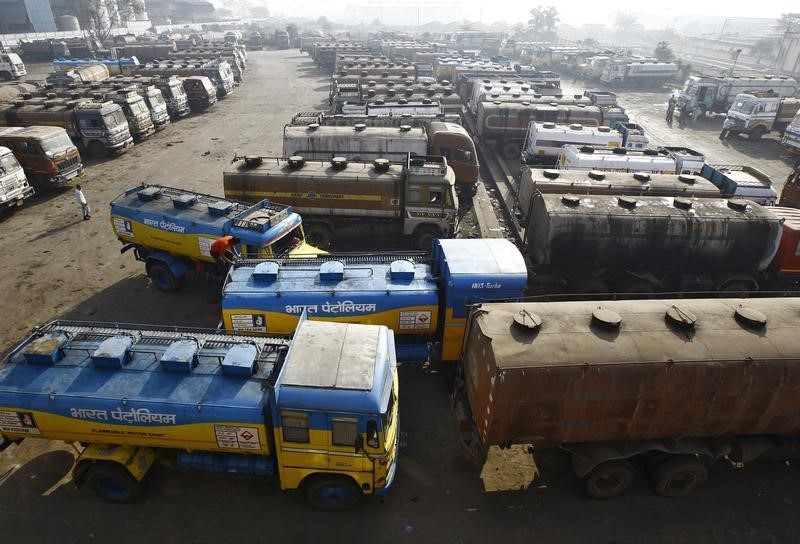By Ron Bousso and Libby George
LONDON (Reuters) - The world's top oil companies can expect only limited solace from refining for the rest of the year, even as the often-troubled segment proved valuable in the face of sinking oil prices.
Overcapacity in the sector previously made it the bane of integrated oil majors such as BP (L:BP), Royal Dutch Shell (L:RDSa), Exxon Mobil (N:XOM), Chevron (N:CVX), Total (PA:TOTF) and Eni (MI:ENI).
But the situation was reversed by weak crude prices, so that combined profits for the oil majors from refining and trading represented 60 percent of total earnings in the first quarter of 2015, compared with 18 percent last year, according to Reuters calculations.
In contrast, companies without refining divisions felt the brunt of the oil price collapse, with Norway's Statoil (OL:STL) for instance swinging to surprise net loss.
Refining and trading is now expected to cushion companies' results in the second quarter, albeit less so after oil prices gained more than 20 percent in April.
"The refining boom is probably already running down in April," Simon Henry, Shell's chief financial officer, said on Thursday, adding that positive factors such as relatively high levels of maintenance, reducing overcapacity, were beginning to subside.
BP expected refining margins in the second quarter to be similar to the first due to high levels of global refinery maintenance.
Energy consultancy FGE said the U.S. driving season and Middle Eastern distillate demand during the summer would prolong the scenario, but by the fourth quarter refining would again be a drag. And any increase in crude prices would further weaken refining margins.
FGE expects margins to fall to just $2 (1.32 pounds) per barrel in Europe by the fourth quarter, from around $6 per barrel now, and to roughly halve in the United States to around $5 to $6 per barrel from now to the end of the year.
"That doesn't leave much to cover fixed (refining) costs," FGE's Steve Sawyer said. "You won't see (strong downstream) for much longer."
NO GAME CHANGER
Ultimately, companies such as France's Total (PA:TOTF) and Italy's Eni (MI:ENI) are unlikely to change plans to scale down refining in Europe as they face growing overseas competition and limited regional demand.
Shell's Henry said he sees a "self correction" in margins coming soon, while Sawyer said new production and a relatively high level of stored products would weigh on the industry.
"You have something of a perfect storm for refineries in the fourth quarter," Sawyer said. "Refinery output in the Middle East is set to be 1 million barrels per day higher than last year. Where is all that product going to go?"
Abu Dhabi's newly expanded Ruwais refinery expects to be fully up and running by June. India's biggest refiner IOC also began last month operations at its new Paradip refinery.
Additionally, traders who used the drop in oil prices earlier this year to store oil in order to sell it at higher prices in the future, a market structure known as contango, are expected to offload some of those products.
BP said it will gradually sell throughout 2015 more than $1.25 billion of oil, the equivalent of around 23 million barrels, it had stored earlier this year.

"When we look back at 2015," Sawyer said, "the second half of the year will be a lot different than the first half."